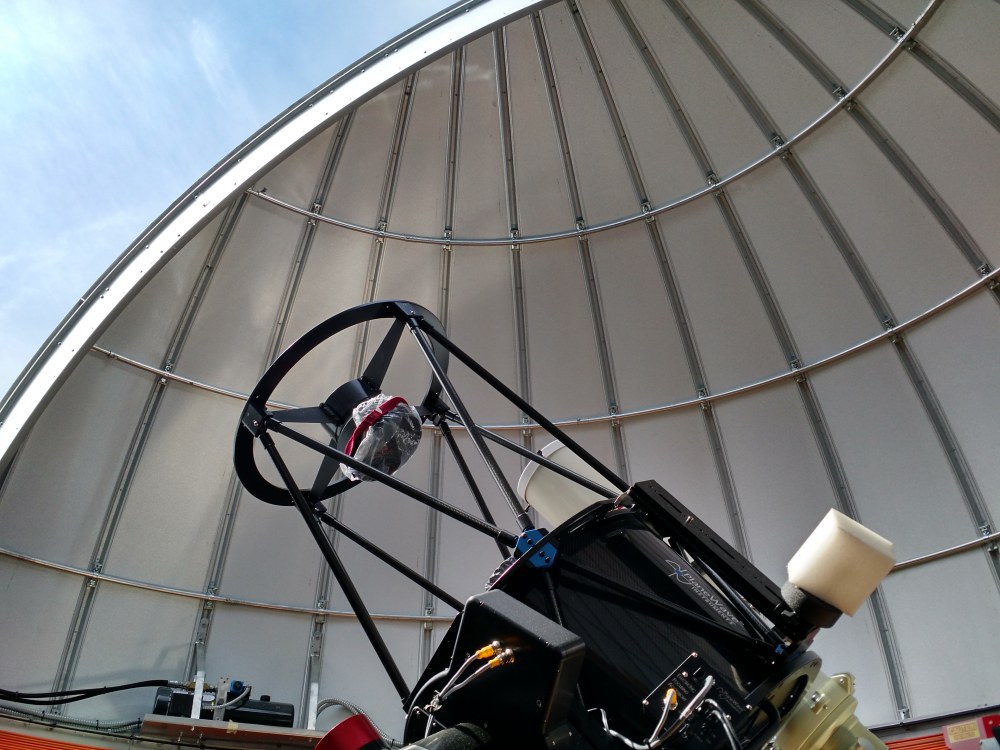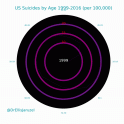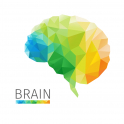12 Academic Papers You Should Read as a Layperson
By: Dr. Ellis Jaruzel Licensed Psychologist Posted On Sep 19, 2016
As a former professor and a current Chief Research Officer at a startup, I get asked a lot of questions. Past students message me over social media to ask about this or that study. Random strangers occasionally inquire about a reputable expert in their geographic area. Most of the questions are in my wheelhouse, but some of them are not. More than a few of the questions that I get asked are utterly bizarre. Despite all of this, I am only very rarely asked about which academic articles I would personally recommend that someone should read.
I can imagine a range of reasons why people might be reticent to ask after such information. Many of us are strapped for time and an academic article often requires more than a few minutes’ commitment to read; the investment may simply be too much for most of us. Academic papers can often be intimidating and counterintuitive to the lay reader. Additionally, reading for depth might be becoming something of a lost art in the world of titles of the form “X Number of Shocking Things You Won’t Believe Y Celebrity Did in the Z Decade!” There are even recent studies that show a significant percentage of readers typically share even these brief articles without fully reading them. So dear reader, I invite you to up-level your attention and perseverance as I suggest a reading list that will take some time to digest, but will ultimately leave you much better for your efforts.
1. Smil, V. (2002). Eating meat: evolution, patterns, and consequences. Population and development review, 28(4), 599-639.
I want to start you off with a paper that demonstrates what is possible in academic writing and Vaclav Smil is one of the most gifted academics writing at this time. Reading just about anything by Smil is likely to be a rewarding experience. This paper will take you on an exciting tour through the history of humanity’s relationship with meat. Whether you are a meat and potatoes kind of person, a lifelong vegan, or just mildly curious, this article will likely give you some food for thought.
http://www.vaclavsmil.com/wp-content/uploads/docs/smil-article-2002-pdr2003.pdf
2. Kruger, J., & Dunning, D. (1999). Unskilled and unaware of it: how difficulties in recognizing one's own incompetence lead to inflated self-assessments. Journal of personality and social psychology, 77(6), 1121-1134.
It is likely that you can think of at least one person in your life for whom awareness of their own incompetence in a domain of functioning is strikingly lacking. It turns out that people that are less skilled in a given task are also less skilled in the appraisal of skill in that task. Dunning and Kruger summarize some of the important findings here and might just introduce you to the importance of metacognition. This paper has more of the organizational layout of a typical academic publication.
https://healthsciences.ucsd.edu/som/anesthesia/education/visiting-professor/Documents/Unskilled_Unaware_Kruger.pdf
3. Thomas, A., Stanford, P., & Sarnecka, B. (2016). No Child Left Alone: Moral Judgments about Parents Affect Estimates of Risk to Children. Collabra, 2(1).
As of this writing, this is an extremely recent article. It is also an article that is relatively easy for the lay reader to follow, provided you skip over a few of the sections that involve the sausage-making aspects of research. If you are not trained in research methods or statistics, you can just read the introduction and skip down to the General Discussion section. This paper explores how, in general, we appear to be far more concerned about the risk to children from being left unattended than reality warrants and this judgment is colored by moral assessments of the situation. Maybe after reading this you might feel better about kids roaming the park.
http://www.collabra.org/articles/10.1525/collabra.33/
4. Henrich, J., Heine, S. J., & Norenzayan, A. (2010). The weirdest people in the world? Behavioral and brain sciences, 33(2-3), 61-83.
Who are the WEIRDest people in the world? We are! Okay I might have just made some assumptions about who you are and how you see the world there. Just this process of assumption appears to be fairly widespread in the psychological, economic, and neuroscience research literature. If the introductory page of this paper is shocking to you in one way, keep reading as the rest may be shocking to you in a far different way. This is probably one of the most important papers in anthropology, economics, neuroscience, and psychology of the last few decades.
http://www2.psych.ubc.ca/~anlab/Manuscripts/Weird_People_BBS_Henrichetal_FullPackage.pdf
5. Stone, P., Brooks, R., Brynjolfsson, E., Calo, R., Etzioni, O., et al. (2016). "Artificial Intelligence and Life in 2030." One Hundred Year Study on Artificial Intelligence: Report of the 2015-2016 Study Panel, Stanford University, Stanford, CA. Doc: http://ai100.stanford.edu/2016-report. Accessed: September 6, 2016.
One of the advantages of an academic treatment of a topic is that it can allow for a very deep investigation of the topic in question. So hold on, because here is one of the initial reports from a committee that intends to study Artificial Intelligence (AI) for at least the next 100 years! It is written to be readable by the layperson and includes both an executive summary and a deeper examination of what AI is and how it is likely to have a profound effect on the way we work and live in the decades ahead.
https://ai100.stanford.edu/2016-report
6. Bostrom, N. (2013). Existential risk prevention as global priority. Global Policy, 4(1), 15-31.
Academic consideration also allows us to look at really big picture topics that go far beyond even the lived experience of any human known to have existed to this point. This is just such a paper. In it, the author invites us to give thought to a class of threats called existential risks, that is risks that could potentially annihilate the human species or make our global civilization impossible or unendurable. I invite you to read this and start to think about how we as a species talk about, prepare for, and manage such extreme risks.
http://www.existential-risk.org/concept.pdf
7. Lerner, J. S., & Tiedens, L. Z. (2006). Portrait of the angry decision maker: How appraisal tendencies shape anger's influence on cognition. Journal of Behavioral Decision Making, 19(2), 115-137.
Getting angry is quite human and you probably know that we humans are less prone to make good decisions when we are angry. This paper summarizes the ways in which anger alters our cognition. If you can make it through this paper, you will be armed with some important insights about human cognitive processes.
http://projects.iq.harvard.edu/files/lernerlab/files/lerner_tiedens_2006.pdf
8. Fowler, J. H., & Christakis, N. A. (2008). Dynamic spread of happiness in a large social network: longitudinal analysis over 20 years in the Framingham Heart Study. Bmj, 337, a2338.
Here we see empirical evidence that your friends’ and family’s happiness affect your happiness and even the happiness of a friend of a friend could have a notable impact on your own. Read this study and then start to consider what the implications might be. If a happy community and extended family are in your own best interest, then maybe some things done for collective interest are also a part of your own interest.
http://www.bmj.com/content/337/bmj.a2338.short
9. Turing, A. M. (1950). Computing machinery and intelligence. Mind, 59(236), 433-460.
This is a classic paper in the AI literature. There is even a movie based on Turing’s life that explores how he was engaged in his own version of “the imitation game.” If you want to grapple with some of the seminal ideas in computing and machine intelligence this is about as good a place to start as any. This paper also demonstrates how good questions and ideas can still be lively even decades later.
http://cogprints.org/499/1/turing.HTML
10. Gould, S. J., & Lewontin, R. C. (1979). The spandrels of San Marco and the Panglossian paradigm: a critique of the adaptationist programme. Proceedings of the Royal Society of London B: Biological Sciences, 205(1161), 581-598.
Whoa! That title huh? Now that you have cut your teeth on some easier to approach papers we can venture into controversial waters. If you are not afraid of British spellings and occasionally looking things up, you will be treated to some insight into the recent history of evolutionary biology. This paper is a very important paper for the controversies it has evoked and continues to evoke. In reading this, you will probably learn some things about both architecture and biology. If you do any follow-on reading, you will likely learn that there are several errors and several controversies within this paper. This is one of those papers that is better than simply “right” or “wrong;” it invites a deeper consideration of what we consider to the be the case and how we go about considering cases within a discipline.
http://web.csulb.edu/~acarter3/course-advevol/files/gould-lewontin-ProcRoySocB1979=spandrels.pdf
11. Esbjorn-Hargens, S. (2009). An overview of integral theory: an all-inclusive framework for the 21st century. Integral Institute: Resource Paper No. 1, pp. 1–24.
Now that you have come this far, why not dare a little further? Beyond theory, there is metatheory. This paper suggests a possible way to integrate seemingly disparate disciplines into a coherent, transdisciplinary, metatheory. Whether you agree or disagree, understanding this gem will open up new vistas of understanding with regard to current and past dilemmas.
http://www.dialogue4health.org/uploads/resources/IntegralTheory_031809.pdf
12. Piketty, T., & Zucman, G. (2014). Capital is Back: Wealth-Income Ratios in Rich Countries 1700–2010. The Quarterly Journal of Economics, 129(3), 1255-1310.
Last, but not least, is a challenging and controversial piece on wealth that cuts to the heart of capitalism. If you are up for the ride, this paper will sweep through over three centuries of data in order to make a case about wealth and income that is certainly relevant to current political and economic reactions and counterreactions.


